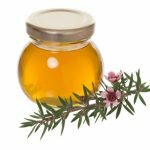Antioxidants Improve Brain Function In Alzheimer’s Sufferers
Recent research shows that about 23 percent of us over age 65 have some level of cognitive impairment, and the risk increases 10 percent every ten years after that. And we still don’t know very much about what causes it – or how to treat it. What we do know is that Alzheimer’s is one of the most difficult diseases for people and their families to deal with.
While the mainstream continues to search for a magic wand (no doubt one they can patent), millions continue to suffer – and millions more pray that Alzheimer’s won’t strike them or their families. But there is reason for hope. There IS progress being made – although you may not see it in the headlines. In the past few weeks, I’ve come across several promising studies on natural therapies that can improve the symptoms of Alzheimer’s disease, prevent cognitive decline, and boost memory.
Antioxidant improves AD patients performance on cognitive tests
In alternative medicine circles, we’ve talked for years about how antioxidants may help prevent and slow down the progression of cognitive decline. But the mainstream has largely ignored this field of study – until now. The US medical journal Neurology published a study showing that the antioxidant amino acid N-acetylcysteine (NAC) can improve cognitive function in patients with probable Alzheimer’s disease (AD). The patients who took NAC showed improvement in nearly every outcome measure, without experiencing any negative side effects.
In this trial, scientists identified 47 people who met the standard criteria for probable Alzheimer’s disease. The participants were randomly assigned to receive either 50 mg of NAC each day, or a placebo. Both groups underwent a battery of psychometric tests at the beginning of the study, at 12 weeks, and at 24 weeks.
At 24 weeks, patients in the NAC group performed significantly better on letter fluency tasks and on the Wechesler Memory Scale, and showed improvement on nearly all other assessed tasks when compared with placebo. As the study’s authors wrote: The direction and magnitude of change over time favoured NAC in almost every test and no comparison favoured placebo.
NAC is widely available in health food shops and from supplement suppliers. Most brands we’ve seen are 500 to 600 mg – much higher than the 50 mg used in this study. But even at these higher doses, NAC hasn’t been shown to have side effects. The only cautionary recommendation is to take vitamin C along with NAC, to prevent amino acids from oxidation.
Keeping homocysteine levels low may prevent Alzheimer’s
The importance of homocysteine was overlooked for years. Today, nearly everyone agrees that homocysteine is one of the most important markers for heart disease. Now, new research is suggesting homocysteine may be a marker for future cognitive decline as well.
In a study of 32 healthy elderly people, scientists found that patients with elevated homocysteine levels were more likely to show a decline in key assessments over a five-year period. All the participants had their homocysteine levels measured and recorded, and then five years later returned for cognitive testing. Even after adjusting for age, sex, education, kidney function, vitamin B status, smoking, and hypertension, homocysteine remained a valid predictor of cognitive decline, particularly on word recall, orientation, and the ability to copy complex shapes and designs.
A normal homocysteine level is 12 or less; anything above 12 is considered high. If you find that you have a high homocysteine level, you can lower it safely and effectively with a simple, natural blend of vitamin B6, B12, and folic acid.
It is always a good idea to seek advice from a qualified nutritionist before starting a new supplement regimen.
Plant-based supplement can help improve memory
In a past e-alert I told you about a supplement derived from the vinca minor plant called vinpocetine. This natural substance has been used for decades as a prescription medication in Europe and Asia.
Just recently, I came across more evidence that vinpocetine works. In a meta-analysis, scientists at the University of Miami School of Medicine in the US described how they searched the National Library of Medicines MEDLINE database for solid vinpocetine research. They came up with 39 studies that met their comprehensive criteria.
The majority of the studies found that vinpocetine helped improve blood flow to the brain (lack of adequate blood flow is a common cause of cognitive impairment). And the three human clinical trials included in the meta-analysis all showed a significant improvement during the treatment with vinpocetine in the cognitive function of patients suffering with dementia.
A vipocetine formulation called Memoractiv is only available to licensed doctors and pharmacists in the US however, further clinical trials are needed before vipocetine is made available in the UK. I will ensure to bring you the latest findings as they happen.
There are still a lot of unanswered questions about Alzheimer’s and age-related cognitive decline. But at least were discovering more about how to attack it. don’t wait for conventional medicine to produce a cure. Take your future in your own hands right now, and do what you can to protect yourself and your family from the possibility of facing this dreaded condition.
Did you find this information useful?
Then why not get more expert health recommendations just like this delivered direct to your inbox?
"It is truly refreshing to read a newsletter on the topic of alternative medicine which is scientifically based and reviewed by professionals..." - Robert Sinott
We respect your privacy and will never share your details with anyone else.Disclaimer: This article is part of the Daily Health's extensive research archive. The research and information contained in this article was accurate at the the time of publication but may have been updated since the date of publication. Consult our most recent articles for the latest research on alternative health and natural breakthroughs.
Bear in mind the material provided in this content is for information purposes only. We are not addressing anyone’s personal situation. Please consult with your own physician before acting on any recommendations contained herein.












